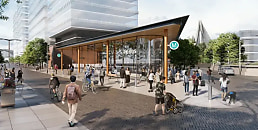Consumer anxiety has risen “sharply” in the second quarter of 2018 overall, especially when it comes to high-income earners making home mortgage repayments, according to NAB’s Consumer Anxiety Index.
National Australia Bank’s latest consumer behaviour survey has found that anxiety had increased across all components of the index, from an overall survey low of 51.6 points (out of 100) in the first quarter of 2018 to 58.8 points in the second quarter, marking its highest level since Q3 2016.
However, it was still below the long-term average of 59.8 points.
Home mortgage repayments, which was identified as a major contributor to financial stress by 13 per cent of respondents, were particularly concerning to high-income earners in Q2 (26 per cent).
Based on age, consumers between 30 and 49 years (17 per cent) were most concerned about their home mortgage repayments than those in the 18–29 (14 per cent) and 50-plus (9 per cent) age groups.
Anxiety around the level of personal household debt, which was selected as a significant contributor to financial stress by 12 per cent of respondents, was also the highest among high-income earners (19 per cent).
However, repaying mortgages for investment properties were a minor consideration to financial stress; among high-income earners, only 7 per cent of respondents saw it as a consideration, and even less overall at 3 per cent.
Overall, consumers were concerned about the Australian economy’s impact on their future spending and savings plans (up by 8.7 quarter-on-quarter to 63.8 points), with their anxiety reaching its highest level since NAB first started tracking this component of the index in Q2 2017.
Economic concerns grew the most in Western Australia (up by 12.9 points QoQ to 65.4 points) and Victoria (up by 10.7 QoQ to 64.5 points), as well as among the over-50 age group (67.8 points), compared to the 30–49 (61 points) and 19–29 (60.6 points) age groups.
Anxiety around household finances increased more among women (up by 10.3 to 64.6 points) than men (up by 7 to 62.9 points).
Living costs remained the biggest contributor to overall anxiety (up by 7.5 to 67.5 points), according to NAB’s report, with 61 per cent reporting “medium” or “high” levels of stress in Q2, compared to 46 per cent in Q1.
Half of consumers who had indicated that they were “highly” concerned about their financial position in Q2 said that their utility bills were having the biggest impact, compared to 41 per cent in the first quarter of 2018. This was followed by grocery bills (up by 1 per cent to 26 per cent) in Q2.
As such, consumers were found to be spending less on “non-essential” goods and services, compared to “essential” goods and services.
Young people (aged between 18 and 29) said that they were impacted by rental payments (33 per cent), grocery bills (35 per cent), low wages (33 per cent), not enough work (23 per cent) and transport expenses (22 per cent) than other age groups.
For 30- to 49-year-olds, along with mortgage repayments, children’s expenses (17 per cent) had a bigger impact on their financial position than other age groups; while those over 50 years old said that utility bills (58 per cent), low pensions and other benefits (36 per cent), medical expenses (19 per cent), insufficient superannuation (18 per cent) and the state of the Australian economy (13 per cent) had a greater impact.








You are not authorised to post comments.
Comments will undergo moderation before they get published.